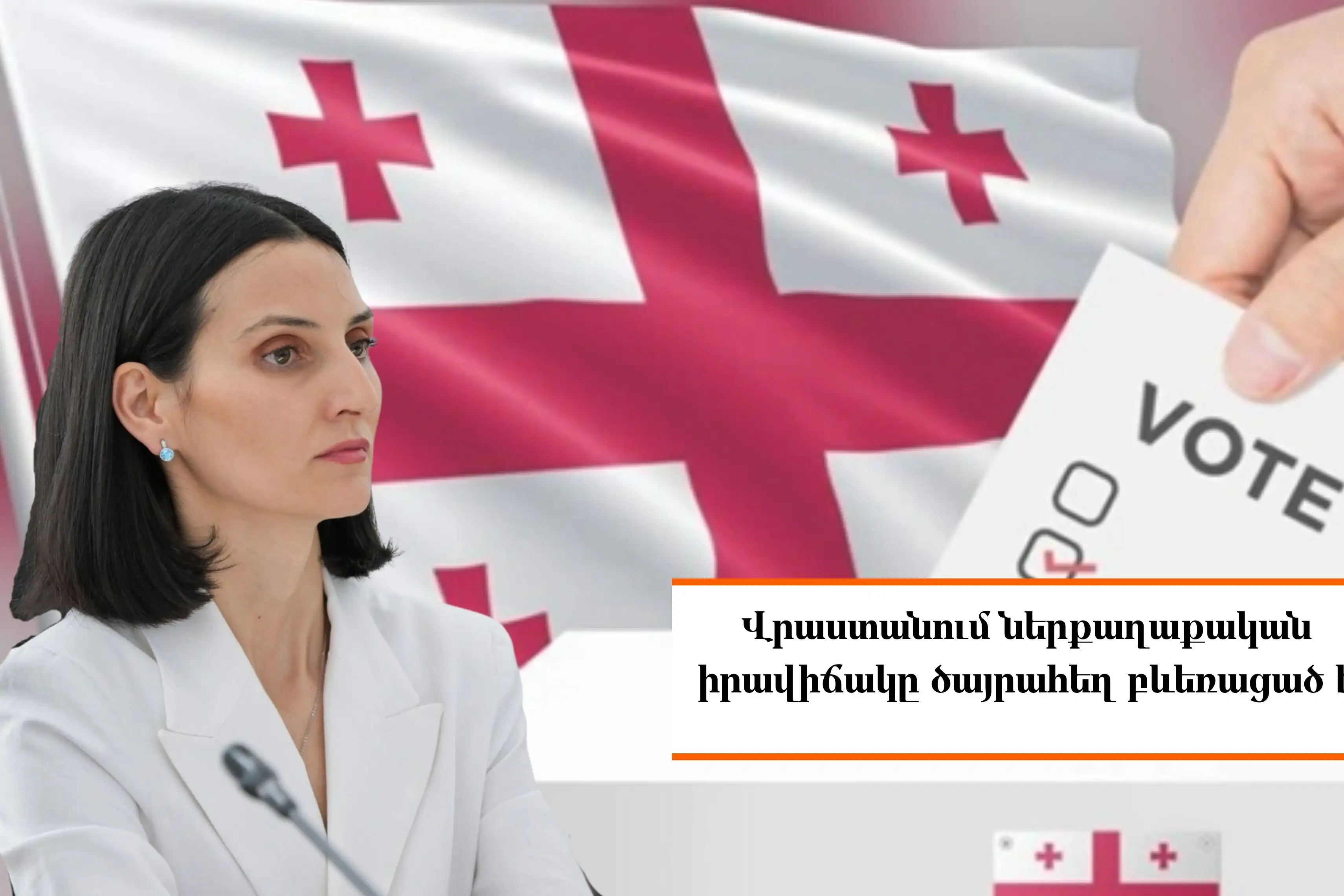The Speaker of the Georgian Parliament, Papuashvili, announced that citizens abroad will be prohibited from voting in the national elections. The Speaker of the Parliament cited the example of Armenia and other countries.
Radar Armenia spoke with an expert on Georgian matters, Hasmik Meliksetyan, on the topic.
- In your opinion, to what extent is international experience equivalent to Georgia, and does such an approach ensure the transparency and democratic quality of the elections?
- Georgian citizens living in foreign countries will no longer be able to vote in the Georgian parliamentary elections at special polling stations opened in their countries. However, according to the Speaker of the Georgian Parliament, they will be able to vote if they return to their homeland every four years and cast their votes in Georgia itself. As for the examples given by Shalva Papuashvili, these are not justifications for their own choice, but direct examples, including from a neighboring country. However, it is worth noting that the topic of citizens voting in foreign countries already generated considerable controversy during the 2024 parliamentary elections. The fact is that most citizens who emigrated from Georgia voted for opposition parties, and only 13.5% voted for the ruling team. Sixty polling stations were opened in 42 countries, and the opposition and the then-President of the country, Salome Zurabishvili, called for the opening of polling stations in more cities, as only 35,000 out of more than 95,000 registered voters were able to cast their votes. With this step, the ruling team aims to make the results of the upcoming parliamentary elections more predictable and prevent the opposition from gaining votes from abroad.
-What impact could this restriction have on the Georgian political landscape, taking into account the activity of Georgian communities abroad, and what social or political risks could such a law pose?
-It is no secret that the domestic political situation in Georgia has been highly polarized over the past year. In 2024, following the parliamentary elections, the ruling Georgian Dream party implemented several legal and political changes, resulting in the imprisonment of most leaders of the opposition parties. Former Prime Minister Giorgi Gakharia, now an oppositionist, is currently in Germany. It is also no secret that several Western countries not only do not welcome the foreign and domestic policies pursued by the ruling team, but also openly criticize and impose sanctions on them. It is difficult to predict how events in Georgia will unfold in the coming years, but the restrictions have already created significant difficulties for the opposition. It will be clear in what form the opposition will participate, or whether it will participate at all, in the next parliamentary elections only in the years to come. However, in the event of participation, these votes are essential for them to.
- The Speaker also noted that the absence from the country increases the risk that a citizen who is physically far away will make an uninformed choice. How would you comment on this?
-The words of the Speaker of the Georgian Parliament, Shalva Papuashvili, are understandable on the one hand, because when you do not live in an environment, you can perceive information and events differently, and the election, therefore, may be different. On the other hand, with this change, those people who do not currently share the policy pursued by the Georgian government and have left the country will also not have the opportunity to vote. One thing is clear: the coming years will be crucial for Georgia, and any legal and political changes or restrictions should be considered in this context.
Lilit Abrahamyan


















